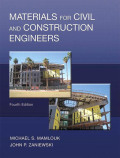
EBK MATERIALS FOR CIVIL AND CONSTRUCTIO
4th Edition
ISBN: 8220102719569
Author: ZANIEWSKI
Publisher: PEARSON
expand_more
expand_more
format_list_bulleted
Textbook Question
Chapter 7, Problem 7.53QP
Discuss the concept of high-performance concrete. Discuss some of its properties that make it preferred over conventional concrete.
Expert Solution & Answer
Want to see the full answer?
Check out a sample textbook solution
Students have asked these similar questions
2-7 The force P applied at joint D of the square frame causes the frame to sway and form the dashed rhombus. Determine the average normal strain developed in wire AC. Assume the three rods are rigid. I understand how you calculate length LAC its just the sqrt(400^2+400^2) = 565.685mm. I do understand that you have to take LAC'-LAC/LAC to get .0258mm/mm. I'm just not understanding the cosine law used to calculate LAC'. I guess what I'm asking is why do you use cos instead of sin or tangent? I've been trying to understand why that was used for a bit now and it's probably something simple I'm forgetting. If you can, please clarify it in detail. Thank you so much!
Traffic flow on a three-lane (one direction) freeway can be described by the Greenshields model. One lane of the three lanes on a section of this freeway will have to be closed
to undertake an emergency bridge repair that is expected to take 2 hours. It is estimated that the capacity at the work zone will be reduced by 30 percent of that of the section
just upstream of the work zone. The mean free flow speed of the highway is 70 mi/h and the jam density is 150 veh/mi/In. If it is estimated that the demand flow on the
highway during the emergency repairs is 85 percent of the capacity, using the deterministic approach, determine the following.
(a) the maximum queue length (in veh) that will be formed
veh
(b) the total delay (in h)
h
(c) the number of vehicles that will be affected by the incident
veh
(d) the average individual delay (in min)
min
Non-constant sections are used in bridges without changing the appearance of the bridge significantly.
Refer to the figure below. Compute the ratio of moment inertial after to before of the plate girder shown
(greater than 1). A 10x0.5" steel plate of the same grade as the plate girder and is fillet welded to the
flanges
Chapter 7 Solutions
EBK MATERIALS FOR CIVIL AND CONSTRUCTIO
Ch. 7 - The design engineer specifies a concrete strength...Ch. 7 - A project specifies a concrete strength of 24.1...Ch. 7 - A project specifies a concrete strength of at...Ch. 7 - What is your recommendation for the maximum size...Ch. 7 - A concrete mix with a 3-in. slump, w/c ratio of...Ch. 7 - Prob. 7.6QPCh. 7 - You are working on a concrete mix design that...Ch. 7 - Design the concrete mix according to the following...Ch. 7 - Design the concrete mix according to the following...Ch. 7 - The design of a concrete mix requires 1173 kg/m3...
Ch. 7 - Prob. 7.11QPCh. 7 - Prob. 7.12QPCh. 7 - Students in the materials lab mixed concrete with...Ch. 7 - Students in the materials lab mixed concrete with...Ch. 7 - Why is it necessary to measure the air content of...Ch. 7 - What do we mean by curing concrete? What will...Ch. 7 - Discuss five different methods of concrete curing.Ch. 7 - Draw a graph showing the typical relation between...Ch. 7 - Why is extra water harmful to fresh concrete, but...Ch. 7 - Discuss the change in volume of concrete at early...Ch. 7 - Discuss the creep response of concrete structures....Ch. 7 - Prob. 7.22QPCh. 7 - On one graph, draw a sketch showing the typical...Ch. 7 - Using Figure 7.34, a. Determine the ultimate...Ch. 7 - Three concrete mixes with the same ingredients,...Ch. 7 - Three concrete mixes with the same ingredients,...Ch. 7 - Three 100 mm 200 mm concrete cylinders with water...Ch. 7 - Students in the materials class prepared three 4 ...Ch. 7 - Three 150 mm 300 mm concrete cylinders with water...Ch. 7 - Three 6 in. 12 in. concrete cylinders with water...Ch. 7 - A normal-weight concrete has an average...Ch. 7 - Discuss the significance of the compressive...Ch. 7 - What is the standard size of PCC specimens to be...Ch. 7 - Prob. 7.34QPCh. 7 - What is the purpose of performing the flexure test...Ch. 7 - What are the advantages of using a third-point...Ch. 7 - Consider a standard flexural strength specimen of...Ch. 7 - To evaluate the effect of a certain admixture on...Ch. 7 - To evaluate the effect of a certain admixture on...Ch. 7 - Prob. 7.40QPCh. 7 - Prob. 7.41QPCh. 7 - A normal-weight concrete has an average...Ch. 7 - Three batches of concrete were prepared using the...Ch. 7 - Three batches of concrete were prepared using the...Ch. 7 - Prob. 7.45QPCh. 7 - Prob. 7.46QPCh. 7 - Discuss two nondestructive tests to be performed...Ch. 7 - Discuss the concept of concrete maturity meters.Ch. 7 - Discuss four alternatives that increase the use...Ch. 7 - What is self-consolidating concrete? How are its...Ch. 7 - Prob. 7.51QPCh. 7 - Two 6 in. 12 in. concrete cylinders with randomly...Ch. 7 - Discuss the concept of high-performance concrete....Ch. 7 - Comparing PCC with mild steel, answer the...Ch. 7 - Prob. 7.55QP
Knowledge Booster
Learn more about
Need a deep-dive on the concept behind this application? Look no further. Learn more about this topic, civil-engineering and related others by exploring similar questions and additional content below.Similar questions
- 8-18. Determine the vertical displacement of joint C if member CD is fabricated 10 mm too long. 4m D E B Carrow_forward8-17. Determine the vertical displacement of joint C if members AB and BC experience a temperature increase of ST = 50°C. Take a = 12(10-6)/°C. A 4 m E 4 m 4 m B Darrow_forwardPlease solve all pointsarrow_forward
- For the I section prestressed concrete beam with a straight tendon shown in Fig below which is under the prestressing force, and U.D.L. Analyze the stresses at Mid- span at: A- transfer stage (due to initial prestress P. and self weight wo) B- at service stage. (due to effective prestress Pe and full loads) Check stresses with the ACI permissible stresses. Given: Initial prestress force Pi = 750 kN Effective prestress force Pe = 640 kN Wo (self) = 2.7 kN/m = W (D+L) 8 kN/m e = 130 mm I 5 10 mm² fci = 25 MPa (at transfer age), f' = 35 MPa (at service age) ASECTION 114 000 mm² W=4.75 kN/m |- 12 m F I 610mmarrow_forwardKindly help to provide explanation, examples and provide any useful link for citations and learning purposes. This is regarding building diagnosis.arrow_forwardDescribe the scientific of the arrival of enslaved Africans in America and how it has impacted American societyarrow_forward
- For the beam of cross section shown below, analyze the stresses at Mid-span at transfer and at service stages, Neglect losses. Use: f' =41.4 MPa and assume that concrete has attained strength of fci =34.5 MPa at the time of transfer. The initial prestress force is (Psi-1112 kN). The service deal load D.L = 3.65 kN/m (not include self weight of beam). The service live load L.L=14.6 kN/m. Use n=7. Check stresses with the ACI permissible stresses Determine the equivalent transformed section in compute A and I h=508 mm d=381 9.15 As= 1290 mm² 305arrow_forwardFor the prestressed concrete beam with a straight tendon shown in Fig below which is under the prestressing force of 1620 kN, Analyze the stresses at Mid-span at transfer stage. The uniformly distribution load (self weight) = 4.75 kN/m. Then draw the stress distribution across the section mid-span. W=4.75 kN/m Δ 7.3 m F= 1620 kN 750 mm I 230 mm 500 mmarrow_forward4.36 A pipe slopes upward in the direction of liquid flow at an angle of 30° with the horizontal. What is the pressure gradient in the flow direction along the pipe in terms of the specific weight of the liquid, y, if the liquid is decelerating (accelerating opposite to flow direction) at a rate of 0.3 g?arrow_forward
- 4.25 In this flow passage, the velocity is varying with time. The velocity varies with time at section A-A as 4m V-41/1-230/1 2.25- S to At time t = 0.50s, it is known that at section A-A the velocity gradient in the s direction is +2.1 m/s per meter. Given that to is 0.6 s and assuming quasi-1-D flow, answer the following questions for time t = 0.5 s: a. What is the local acceleration at A-A? b. What is the convective acceleration at A-A? A Diameter 50 cm Problem 4.25arrow_forwardCan you design a (Open Channel): -Most Efficient Section (Rectangle Shape) -Cost Estimate -Structural Analysis Design Requirements: Bed Slope= 1:1500 Manning's (n)= 0.015 Discharge: Q= 18 m^3/sarrow_forwardWhat is Highway engineeringarrow_forward
arrow_back_ios
SEE MORE QUESTIONS
arrow_forward_ios
Recommended textbooks for you
 Traffic and Highway EngineeringCivil EngineeringISBN:9781305156241Author:Garber, Nicholas J.Publisher:Cengage Learning
Traffic and Highway EngineeringCivil EngineeringISBN:9781305156241Author:Garber, Nicholas J.Publisher:Cengage Learning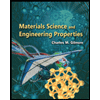 Materials Science And Engineering PropertiesCivil EngineeringISBN:9781111988609Author:Charles GilmorePublisher:Cengage Learning
Materials Science And Engineering PropertiesCivil EngineeringISBN:9781111988609Author:Charles GilmorePublisher:Cengage Learning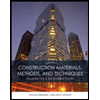 Construction Materials, Methods and Techniques (M...Civil EngineeringISBN:9781305086272Author:William P. Spence, Eva KultermannPublisher:Cengage Learning
Construction Materials, Methods and Techniques (M...Civil EngineeringISBN:9781305086272Author:William P. Spence, Eva KultermannPublisher:Cengage Learning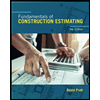 Fundamentals Of Construction EstimatingCivil EngineeringISBN:9781337399395Author:Pratt, David J.Publisher:Cengage,
Fundamentals Of Construction EstimatingCivil EngineeringISBN:9781337399395Author:Pratt, David J.Publisher:Cengage,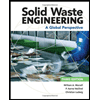 Solid Waste EngineeringCivil EngineeringISBN:9781305635203Author:Worrell, William A.Publisher:Cengage Learning,
Solid Waste EngineeringCivil EngineeringISBN:9781305635203Author:Worrell, William A.Publisher:Cengage Learning,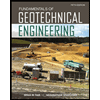 Fundamentals of Geotechnical Engineering (MindTap...Civil EngineeringISBN:9781305635180Author:Braja M. Das, Nagaratnam SivakuganPublisher:Cengage Learning
Fundamentals of Geotechnical Engineering (MindTap...Civil EngineeringISBN:9781305635180Author:Braja M. Das, Nagaratnam SivakuganPublisher:Cengage Learning

Traffic and Highway Engineering
Civil Engineering
ISBN:9781305156241
Author:Garber, Nicholas J.
Publisher:Cengage Learning

Materials Science And Engineering Properties
Civil Engineering
ISBN:9781111988609
Author:Charles Gilmore
Publisher:Cengage Learning

Construction Materials, Methods and Techniques (M...
Civil Engineering
ISBN:9781305086272
Author:William P. Spence, Eva Kultermann
Publisher:Cengage Learning

Fundamentals Of Construction Estimating
Civil Engineering
ISBN:9781337399395
Author:Pratt, David J.
Publisher:Cengage,

Solid Waste Engineering
Civil Engineering
ISBN:9781305635203
Author:Worrell, William A.
Publisher:Cengage Learning,

Fundamentals of Geotechnical Engineering (MindTap...
Civil Engineering
ISBN:9781305635180
Author:Braja M. Das, Nagaratnam Sivakugan
Publisher:Cengage Learning
What is Concrete?; Author: Practical Engineering;https://www.youtube.com/watch?v=UOHURuAf5iY;License: Standard Youtube License